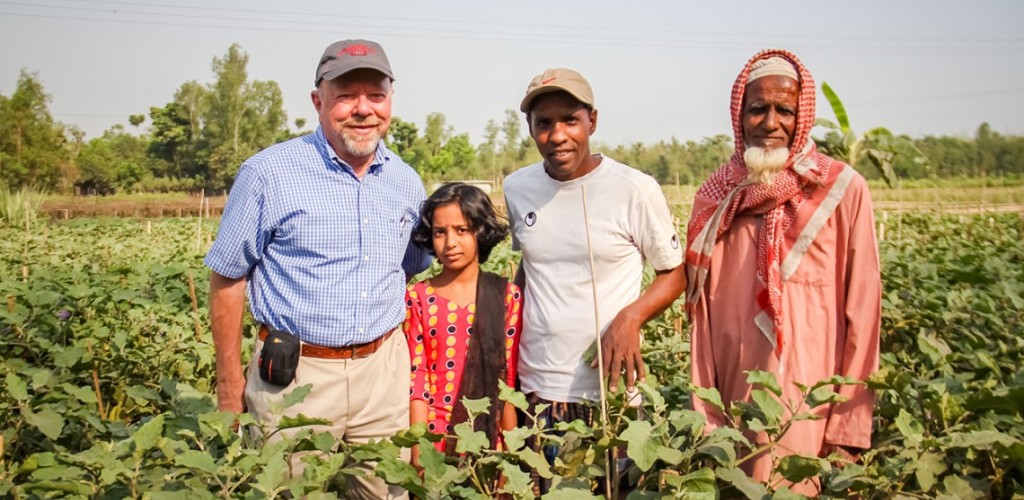Farmers are continuing to adopt Bt eggplant (brinjal) in Bangladesh, resulting in reduced pesticide use and higher incomes, according to a new paper authored by scientists involved in developing and releasing the genetically modified crop.
Writing in Frontiers in Bioengineering and Biotechnology, the scientific team, led by Anthony Shelton, Cornell professor of entomology, revealed that this year 27,012 Bangladeshi farmers benefited from the pest-reducing technology.
The latest figures show a substantial increase from the 6,512 farmers who had adopted Bt brinjal during the 2016-17 season. Bt brinjal was first released experimentally to just 20 farmers in 2013-14, 108 farmers in 2014-15 and 250 farmers in 2015-16.
The paper confirms that pest-resistant Bt brinjal has enabled small-scale family farmers who grow the crop to make big reductions in their use of pesticides and dramatically increase their income from selling the vegetables in local markets.
A study in the 2016-17 cropping season compared 505 Bt brinjal farmers with 350 non-Bt brinjal farmers. It found a 61 percent saving in pesticide cost, which translated to a 650 percent increase in returns, from $2,151 per 100 acres for Bt brinjal compared with $357 for non-Bt brinjal.
These cost savings and increases in returns show not just a significant environmental gain due to pesticide reductions, but a huge potential improvement in livelihoods for these farmers, many of whom live in poverty, said Shelton.
“Using Bt brinjal, Bangladeshi growers receive a sixfold higher economic return and benefit greatly by a dramatic reduction in exposure to harmful pesticides,” said Shelton, director of the Bt brinjal project. “Bt brinjal is making a positive difference in the lives of resource-poor people in Bangladesh, and similar results could be achieved in other countries if their farmers were allowed access to this novel and safe technology.”
Bt brinjal was initially intended for Bangladesh, India and the Philippines. However, anti-GMO activists successfully blocked the deployment of Bt brinjal in both India and the Philippines, with the result that eggplant farmers in both countries continue to be dependent on insecticide spraying. An economist in the Philippines recently reported that farmers there are losing as much as $640 million annually due to noncommercialization of the crop.
The new paper shows that Bt brinjal has been effective in protecting crops against the eggplant fruit and shoot borer pest. Experiments showed less than 1 percent infestation, compared with 35-45 percent infestation for non-Bt eggplant, even with weekly spraying.
The scientists caution that Bt brinjal is not designed to counter all pests, and that control methods are still needed to tackle other insects, such as whiteflies, thrips and mites. This means insecticides may still be needed occasionally, though in much reduced quantities.
Bt brinjal was developed through a public-private partnership among Cornell, Mahyco, Sathguru Management Consultants, Bangladesh Agricultural Research Institute and the United States Agency for International Development (USAID) under the Agricultural Biotechnology Support Project II cooperative agreement (ABSPII).
Although ABSPII ended in 2014, USAID supports the project via the South Asia Eggplant Improvement Partnership, part of USAID’s Feed the Future initiative.






